U.S. influence and Chinese model: how think tankers in China envision their future
Chinese think tank experts compare the effectiveness of U.S. mechanisms with a "Chinese characteristics" approach in advancing international influence, ideological communication, and soft power.
Many experts believed there was still much room for improvement when comparing Chinese think tanks to international, especially U.S. ones, at a seminar that convened over a dozen of China's foremost intellectual minds within the think tank realm.
Ren Xiao, Director of the Center for the Study of Chinese Foreign Policy, Institute of International Studies, Fudan University, praised the Hoover Institution's fundraising and staffing mechanisms. His views were echoed by Wu Shicun, President of China’s National Institute for South China Sea Studies, who emphasized the need for Chinese think tanks to boost international outreach and enhance China's soft power.
Zhu Xufeng, Dean of the School of Public Policy and Management at Tsinghua University highlighted the unique flexibility of Chinese think tanks without the constraints of a partisan system. Despite areas for improvement, he noted that Chinese think tanks possess significant advantages when compared to their counterparts at a similar stage of development. Wang Lili, Deputy Dean of Renmin University of China's National Academy of Development and Strategy, also discussed the advantages of U.S. and European think tanks in global networks but noted limitations due to a narrow "America First" perspective.
The path to the "new-type think tanks with Chinese characteristics" was then further elaborated by Sun Ming, Vice President of Academy of Contemporary China and World Studies, which aligns with insights shared by Yang Rui, Vice President of the China Institute for Reform and Development (Hainan). Yang stressed the importance of problem-oriented research, a global perspective, and the utilization of talent and networks in advancing ideological communication and cultural exchange.
Global Think Tanks (2.0), written by CCG and published by the People's Publishing House, delves into the mission, challenges, and future development of Chinese think tanks against complexities in the international arena. A book release was hosted by CCG on August 18, 2023, followed by a seminar of leading figures from Chinese think tanks and renowned experts and scholars in globalization research.
Ren Xiao, Director of the Center for the Study of Chinese Foreign Policy, Institute of International Studies, Fudan University
From September to December last year, I stayed at Stanford University for three months. During that time, I diligently studied the operations of the Hoover Institution by reading books, attending events, and making on-site observations. I believe that some things cannot be grasped merely through words on paper. One must experience them firsthand. Even experiencing them firsthand isn't enough; one needs to reflect and ponder over a period of time to truly understand.
About the Hoover Institution, I have the following five observations:
Rich Funding Base: The currently operating Hoover Institution has three buildings. One is the Hoover Tower. The second one was built by the federal government in memory of the 31st U.S. President, Herbert Hoover. The third was constructed from donations and is named the Traitel Building. When I arrived there in September, the fourth building was under construction. At that time, no structure had yet emerged above ground. However, by the time I left in December, the building had already taken shape. My American friends joked that it was built so quickly that a Chinese company must be in charge of the construction, but that's not the case. The building has been named the George P. Shultz Building, after the former Secretary of State. With such facilities, many other think tanks in the U.S. might be envious as well.
The richness of its funding is closely related to its Board of Directors. To expand on this point, the Hoover Institution has a powerful Board of Directors. The board is composed of 152 members from various sectors, which is quite impressive. There are also seven honorary distinguished directors and three honorary directors. The board has one chairman and one vice-chairman, who, together with 14 others, constitute the executive committee of the board. As the list of 152 board members is quite long, we specifically studied the 16-member executive committee. After examining the background of each member, we found that apart from one person, Margaret Hoover (a political commentator and author and the great-granddaughter of the founder, Herbert Hoover), the other 15 all come from the business sector. This includes both the chairman and the vice-chairman. Even those who had served as ambassadors were originally from the business sector. Even if they had previously been in politics, they later became CEOs of some company. This discovery made us realize that business people occupy a very high proportion in the Board of Directors of the Hoover Institution. They are the dominant and mainstream leaders. This shows that when forming and supplementing the board, there is careful consideration, and business people are very willing to participate in such research institutions or think tanks. Over time, this has become a kind of culture.
Flexible Staffing Mechanism: The Hoover Institution is located at Stanford University and has intricate ties with it. However, they are two separate entities and organizations. The Hoover Institution has its own board of directors, independent finances, independent personnel, independent operations, and so on. Yet, the two institutions collaborate and share research personnel. For instance, my friend Michael A. McFaul, who was the U.S. Ambassador to Russia during the Obama administration, is primarily a tenured professor appointed by Stanford University and is also the Director of the Freeman Spogli Institute for International Studies. Moreover, he is also appointed as a senior fellow at the Hoover Institution. Similarly, another old friend, Larry Diamond is initially a senior researcher hired by the Hoover Institution but is also a senior researcher at Stanford's FSI. When I was there, I also met an assistant professor from the University of Southern California in Los Angeles, a lady. During our conversation, I asked if she was also a senior researcher at the Hoover Institution? She said, "No, I'm a junior researcher." Some of these researchers are salaried, while others are not; there are different arrangements in place.
The next point is the diverse forms of work and activities. Besides the seminars, reports, and publications we are familiar with, the Hoover Institution has its own publishing department, the Hoover Institution Press. It also has other unique forms of work which I won't delve into because of time constraints.
The last point is about the Hoover Institution's view on China. The Hoover Institution can be considered the most influential think tank in the U.S. and the West. However, it has deep-rooted and even biased views on China. This is not baseless; they have set up two projects related to China. One is called the China's Global Sharp Power Project, and the other is named the Taiwan in the Indo-Pacific Region. The foundational ideas and the work done in these projects show strong preconceived notions about China. But I am still very willing to interact, converse, and even befriend them.
Wu Shicun, President of China’s National Institute for South China Sea Studies and Chairman of the Board of Directors of the China-Southeast Asia Research Centre on the South China Sea
First, I'd like to extend my sincere congratulations to CCG. This congratulation is genuine; firstly, for the release of the new book, and secondly, the 15-year journey is truly not easy. I also started from scratch and gradually built up. It's not easy for CCG to have come this far in 15 years, getting better and growing larger. By "large", I not only mean in scale but also in influence, especially internationally. It's indeed remarkable, especially in China, where the environment for the growth of think tanks isn't necessarily favorable. Before the meeting, I joked, saying CCG's current concern is how to spend the money, fearing it might be too much to spend. Think tanks are indeed always fundraising. This is exactly the case for Prof. Wang Huiyao. I've spent over 20 years in a governmental think tank and just last year started to explore establishing a non-governmental one. I've now encountered challenges. Government money can't be put into non-governmental think tanks. Some have expressed their wishes to donate, but because it's a non-governmental think tank, it's not allowed. It's truly not easy for a non-governmental think tank to come this far, and for this, I want to congratulate you.
President Huiyao Wang is renowned in the domestic think tank scene, but I first met him at the Munich Security Conference. There, he confidently discussed the "Belt and Road Initiative" without even a pen or paper for notes. His capability impressed me greatly. Later, at two significant events, one being a climate change dinner in 2020 during the pandemic with U.S. climate envoy Kerry and Ambassador Fu Ying, I recognized the immense scale and influence of these meetings.
I believe there's a valuable model here. Unlike the West, which has established platforms like the Munich Security Conference, Chinese think tanks often lack such influential platforms. By leveraging existing platforms, impactful discussions can be conducted efficiently and affordably. CCG's success in this area is evident, and they've replicated this model effectively.
From what I've observed, in terms of globalization, CCG stands out among Chinese social think tanks. Their dynamic and streamlined operational mechanisms are commendable. In August last year, during my quarantine in Beijing, I approached Huiyao to better understand CCG's governance and its agile mechanisms. Their ability to swiftly make decisions and execute events is worth emulating. I wanted to share these insights here given the platform and time constraints.
First, I believe that now China has entered an era where think tanks are needed more than ever before. The international environment is not as favorable as it used to be. Since I attended the Munich Security Conference in February this year, I have made five trips — to Germany, then Manila, then Singapore, then in June, I went to the United States for a closed-door meeting. Recently, President Wang, Prof. Xu Bu, and I together attended the 36th Asia-Pacific Roundtable Conference in Kuala Lumpur. In such international settings, criticizing China has become the norm. If you participate in a trade conference, for example, I was the last one to talk about the South China Sea issue, and people would criticize you. Moreover, they often talk nonsense. Basically, in such international academic platforms, it's considered good if others don't speak at all; as soon as they speak, it's mostly to criticize China. This has become a common occurrence. Therefore, the deterioration of the international environment has led to a passive international public opinion environment, resulting in the phenomenon of being criticized in Chinese public opinion forums. I won't go into further detail on this.
The second point is that the capacity of Chinese think tanks, including Chinese think tank scholars and leaders, to effectively and successfully reach out internationally serves as a significant indicator of China's major power status and soft power. Currently, many of supporting policies are not in place. President Xi, on numerous occasions since 2015 or even earlier, when discussing the establishment of high-end think tanks, mentioned in an open document about his internal speeches, the encouragement for Chinese think tanks to expand overseas. Encouraged by this policy, I attempted to establish an Institute for China-America Studies in Washington, D.C. in 2015 through National Institute for South China Sea Studies, as mentioned earlier by Professor Lu Xiang. However, many existing policies are not supportive. The issue is this: permanent staff stationed there can't hold diplomatic passports; hence, they can only go abroad for short-term official visits and must return in a few days. Using a private passport for business trips means travel expenses cannot be reimbursed. This is a major issue resulting from misaligned policies. Today, I shared these two minor viewpoints, and we have a lot more work ahead.
I've visited the Hoover Institution, and when comparing China's think tanks to international ones, there's still a significant room for improvement. I believe the journey ahead is long and challenging, and if we don't catch up, the gap will only widen.
Zhu Xufeng, Dean and Professor of the School of Public Policy and Management, Tsinghua University
Let me touch upon a few points. First, I'd like to extend my congratulations to Dr. Wang Huiyao and Ms. Miao Lu on their collaboration and the publication of the new 2.0 edition of "Global Think Tanks 2.0". I've had the opportunity to read the 1.0 edition. When discussing the concept of "Global Think Tanks", it's essential to delve into the terms "great power" and "think tank". Traditionally, great powers were often characterized by their vast territories, large populations, coupled with military and defense capabilities. However, with the advent of globalization and the demand for a global perspective, global governance has evolved. It is not solely about traditional security issues anymore; nations are also dealing with non-traditional security challenges, and sometimes, it's not even about security at all, but rather about inter-state cooperation at the governance level. As such, a "major power" should be judged more by its ability to shoulder great power responsibilities, exhibit great power demeanor, understand the implications of being a major power, and importantly, to uphold the promises it makes. In this context, it's crucial to consider how some countries, despite their status as great powers, may occasionally violate the commitments they've made in international agreements, which raises questions about their adherence to the responsibilities and expectations associated with great power status.
Second, let's reflect on the nature of think tanks themselves. The history of think tank development in China is not very long, but it's progress has been notably fast. This brings out another question: what should the development model of Chinese think tanks be like? In my opinion, Chinese think tanks should have their own identity and not underestimate themselves. Whenever think tanks are mentioned, people instantly refer to American think tanks and their achievements, or their limitations; and assume Chinese think tanks would follow their paths. This should not be the case. Different countries have different political systems, so think tanks, born as derivatives of that one particular system, are designed to serve that system. The bipartisan or multiparty systems in certain countries may pose limitations to the development of think tanks. Chinese think tanks, on the other hand, don't have to face these constraints and can operate better. Even though the development of Chinese think tanks has been relatively brief, I believe that their current stage of development has already surpassed the stage the U.S. think tanks were at 15 years into their inception. While it's common to compare Chinese think tanks with established think tanks like the Brookings Institution – considering they've been around for a century – we might find areas where Chinese think tanks fall short. However, when compared to those major think tanks when they were just 15 years into their establishment, Chinese think tanks certainly possess significant advantages.
As for non-governmental think tanks like CCG, they play a pivotal role in what we often refer to as the "China Model" of "new-type think tanks". The role of such non-governmental think tanks is elaborated upon in books like "Global Think Tanks 2.0," including how they complement the ideation of national governments and aid in coordination. Especially now, many government departments are willing to engage with non-governmental think tanks because they represent a third-party perspective.
The third point pertains to internationalization. Both Dr. Wang Huiyao and I have written papers on the internationalization of think tanks. Especially in the current geopolitical climate, which is rather uncertain, the international stance of think tanks is crucial. While some experts earlier mentioned issues of think tank decoupling, international cooperation, exchanges, and internationalization of think tanks still play a vital role in our international communications and diplomacy.
Lastly, a vital consideration for any non-governmental think tank is its development and survival. As earlier discussed by some experts, survival is often challenging. However, the environment for non-governmental think tanks has significantly improved since 2013. Previously, many institutions were sensitive to non-governmental think tanks because media outlets and magazines hesitated to publish their articles, fearing that the government's stance towards these think tanks might be unclear. However, since 2013, the government has fully acknowledged and recognized the functions and value of think tanks, especially non-governmental think tanks. This acknowledgement has created a favorable environment for their development. For example, donations from entrepreneurs now present numerous opportunities as they no longer have significant concerns about supporting think tanks. In this evolving landscape, CCG has encountered various, sometimes profound, challenges.
For my fourth point, CCG has now become part of a consortium of think tanks, encompassing public institutions, corporations, foundations, and even those registered overseas. Such organizational innovation has invigorated many institutions while also effectively harnessing societal resources. I believe that other non-governmental think tanks can learn from this model. Especially for think tanks in their initial stages, maintaining vitality and widespread societal support can foster certain favorable conditions, much like what has happened with CCG.
Wang Lili, Deputy Dean of National Academy of Development and Strategy Renmin University of China
This year marks the 15th anniversary of CCG, an institution I familiarized myself with in 2009, just one year after its establishment. Over the past 14 years, as a researcher and practitioner in the field of think tanks myself, I have meticulously traced the practices of CCG, including incorporating them as case studies in several of my recent academic papers. For example, when I study global governance and digital public diplomacy, I choose one think tank from the United States, one from Europe, and one from China to make comparisons. I have found that CCG, whether in terms of their global governance capabilities or their capacity for digital public diplomacy, are highly representative and significant. Especially during the global pandemic in recent years, Dr. Wang Huiyao and Secretary-General Miao Lu, as representatives of Chinese think tanks, have embarked on a groundbreaking journey to the United States and Europe. I have been following their posts and WeChat updates and greatly admire their efforts. I believe that dialogues and exchanges like these between Chinese think tanks and the global policy community and public opinion sphere are essential. The world needs to hear China's voice and understand the thoughts of China's intellectual and policy circles. These dialogues, based on face-to-face communication, are much needed in today's world. So, first and foremost, I would like to extend my salute and congratulations.
I will briefly touch upon a key issue, which is also the central topic of a paper I wrote in the past year or two, concerning the global governance capabilities of think tanks. As you all know, the global society is facing the most severe global crisis since World War II. There is an urgent need for enhanced dialogue and collaboration among countries worldwide. However, it is regrettable that, even in the face of a global pandemic over the past three years, major powers like China and the United States have not managed to cooperate effectively. This is a very serious problem. In this context, among the various actors in global governance, think tanks, as policy research institutions with high credibility and typical non-state actors, can bridge the gaps in global governance. They can help to address the shortcomings of sovereign nations in global governance through their innovative thinking, public opinion dissemination, establishing transnational think tank networks, and provision of global public goods. They can provide a platform and a path for countries around the world to come together to listen, dialogue, negotiate, and cooperate, presenting a viable route to collaboratively address global challenges.
The specific manifestations of the global governance capabilities of think tanks that our team proposed mainly consist of three dimensions: the provision of global public intellectual products, the dissemination of public opinion influence, and the construction of transnational think tank networks. The analysis we propose is still in the preliminary stage of theoretical development, serving merely to intiate a deeper discussion. Today, I welcome critiques from many present here, including experts from the field of think tank research and researchers in American studies and international affairs. When we put forward this analysis, we emphasized that providing global public intellectual products is a core capability of think tanks in participating in global governance. As non-state actors without administrative authority, think tanks mainly contribute through research reports and policy commentaries on global issues. Leveraging official websites, social media, and collaborations with external mass media to construct media convergence for public opinion dissemination is an important means for think tanks to gain influence in global governance. Additionally, through the construction of transnational think tank networks, think tanks can engage in equal negotiations and communications with various state and non-state actors in global governance.
My team and I conducted a comparative analysis of global think tank cases. As I mentioned earlier, in this case analysis, the Chinese think tank we selected was CCG. We arrived at a conclusion that, overall, U.S. and European think tanks may have certain advantages over Chinese think tanks in terms of their transnational think tank networks and influence of public opinion dissemination, partly due to their earlier developmental head-start. However, in the supply of global public intellectual products, U.S. think tanks have demonstrated a narrow perspective emphasizing "America First", which to some extent has hindered their role in global governance. In contrast, the capability of Chinese think tanks in global governance is grounded in the consciousness of a community with a shared future for humanity. They play an important consultative role in policy formulation and ideological expression, and the significant contribution of their public intellectual products. This was especially apparent during the global pandemic period, where CCG organized a series of online meetings and dialogues with top policy experts, former officials, and media representatives from around the world, all focused on global issues with the aim of providing global public intellectual products.
Due to time constraints, I won't delve further into this topic. If any of you are interested in this research, I would encourage you to take a look at our study. The analysis I shared is still in the preliminary stage, serving merely to intiate a deeper discussion; and there is much more work to be done. To conclude, I would like to offer a few suggestions, given that the theme of forum today is to examine the current developments of think tank and to propose some suggestions. I believe that China's think tanks have undergone a "golden age" of rapid development over the past decade or so. Now, it has indeed entered a stage where there is an urgent need to step up efforts and vigorously promote deepening reforms.
Develop an independent theoretical framework for new-type think tanks with Chinese characteristics, enhance autonomous knowledge production, and lead global development of think tank with Chinese theories and ideas.
Build Chinese think tanks adhering to a problem-oriented approach, guided by national interests and the advancement of humanity, to engage in thought dissemination and public diplomacy. Yet, at the same time, it is essential to strengthen research independence while giving equal importance to national interests. Without research independence, the output of ideas might be at a disadvantage, making it even more difficult to serve national strategies.
Place talent at the core, deepen reforms, stimulate innovation, and enhance the competency and standards of think tanks.
Emphasize thought innovation as the foundation for comprehensive think tank public opinion dissemination, particularly focusing on international public opinion dissemination. It is necessary to adapt to the characteristics of communication in the digital age and audience demands, enhancing think tanks' digital communication and dialog capabilities. It is imperative to utilize diverse narratives and communication strategies to provide competing truths to international audiences, fostering emotional identification, and building relationships. Ultimately, this serves the historical stage of the great rejuvenation of the Chinese nation.
Sun Ming, Vice President of Academy of Contemporary China and World Studies
The Academy of Contemporary China and World Studies is affiliated with China Foreign Languages Publishing Administration, an institution engaged in international communication. Based on our usual research and given the limited time today, I primarily want to discuss two major topics: the first is "Two Changes", and the second is "Three Focus Points". The first of the "Two Changes" is that the current international public opinion environment has indeed changed. The second is that the background of our think tanks' development has changed. Today, I met many renowned experts and seniors, and many of you here specialize in strategic and macro research. I'll give three small case studies:
Since the US-China trade friction in 2018, we have felt the West using public opinion as a weapon to launch an all-round, all-weather, and full-scope smear campaign against us. In our research, we noticed that within a certain period, out of ten articles in the New York Times, nearly six were attacking and smearing us. Now this number, six articles, is bound to increase - eight or even ten are possible.
The next small case is about Xinjiang. The topic of Xinjiang itself is of keen interest to the Western media. The ancient city preservation project in Kashgar, Xinjiang, is an example of excellence. Our research team visited the site, and we found many customized preservations and replicas done extremely well. We invited foreign media and think tanks to visit Xinjiang. When we later looked at their reports, the consensus was basically that the unique characteristics of the Uighur people had disappeared. Therefore, this difference in perspectives is essentially a difference in narratives.
The third case involves the former Argentine ambassador to China who, after finishing his term, wrote a book about the rise of China's soft power influence. Overall, the tone and expression of the book are relatively objective. The title of the book is "The Silent Invasion: The Chinese Landing in South America". However, based on this title alone, we can see that his inclination and bias are quite apparent. We later found out that if he hadn't chosen this title, no publisher would have published the book for him. To some extent, this highlights the role of the media, think tanks, and even some officials in shaping public opinion. The overall environment for discourse has indeed changed significantly from previous stages.
The second change I'd like to discuss is related to the evolving context of think tank development. Indeed, the shifts in international situations and the changing international public opinion landscape represent a macro environment. Within this broader environment, microclimates are inevitably influenced. As we currently build our think tanks, and as the experts have already pointed out, we face new challenges that require new approaches and work. Over the past three years since the outbreak of the pandemic, we've realized that there are three groups having a prominent impact on China's image:
Now that the pandemic is easing, the first group is Chinese enterprises going abroad. Starting from the Belt and Road Initiative, these businesses have significantly shaped our national image abroad. The second group consists of Chinese individuals going abroad, including students, young people, and tourists. In all aspects, any Chinese individual abroad will influence our country's image through their words and actions.
There's also the think tank we are in today, CCG. Whether we describe it as societal or private, I always feel that CCG has done a lot of impactful work over the years. Precisely because of this long-term effort, it can emerge as a nimble force during crucial times. And in the current public opinion environment, when there's a need to break through, CCG stands out distinctively and has great potential for the future."
The third group that I believe impacts China's image is the Chinese think tanks that have an international presence. This is the topic we're discussing today. I recently saw some research data, which I guess many experts have already seen. There are two main groups: The first group includes over 70 universities directly under the Ministry of Education that have established more than 700 think tanks, averaging about 10 think tanks per university. The second group is composed of over 30 provincial administrative organizations setting up new think tanks, either as provincial key projects or pilots, averaging about ten or more per province. Apart from these, there is a specific group of think tanks, including China Institute of International Studies, where Dean Xu Bu works, and also, CCG. Whether describing it as non-governmental or private, I always feel that CCG has done a lot of long-lasting work over the years. It's precisely because of this consistent effort that it can emerge as a kind of light cavalry force during critical moments. Moreover, in the current public opinion environment, it can stand out when there's a need to break through. It has great potential for the future.
It was just mentioned that our think tanks are sprouting up everywhere. In our view, the concept of a think tank represents something sophisticated and prestigious. This is because a think tank inherently possesses both "think" and "tank", symbolizing thought and being a collective. I think this summarized concept is quite apt. However, how many of these think tanks can truly persist? And how many of them genuinely step forward when we need them to voice out? This is a challenge we face in building our think tanks, especially given the changing circumstances and backdrop. That's probably why it's self-evident why we're gathered here to discuss this issue today.
Today, I want to share another major aspect, which is the three focus points. We have collaborated a lot with CCG in our academy's regular work. In line with today's theme, I'd like to discuss these focus points:
First, establishing the international discourse power of Chinese think tanks. By analyzing the work of Western think tanks, we realize that an important element in the West's international communication and public opinion formation is the presence of high-level think tanks providing globally-oriented and influential discourse systems and agenda-setting. When we talk about international communication, it essentially revolves around two aspects: narrative and discourse. Relating this to student essays, it's about narrative essays and argumentative essays. Think tanks can play a significant role in both. Think tanks can utilize their strengths, adhere to strategic foresight, global and foundational perspectives, and further expand their academic networks and international influence in country-specific, regional, and localized research. At the same time, from the perspective of public opinion, think tanks need to establish a comprehensive media matrix that meets the national development needs. This will help us promptly address any discordant voices in different international public opinion arenas and topics. Only in this way can we establish a discourse system with Chinese characteristics through think tanks and set the boundaries of our think tank research. This might also be an aspect to consider.
Second, enhancing the dissemination and visibility of think tanks' own achievements. Many experts mentioned earlier that CCG is doing well in this regard. Our academy has participated in many activities organized by CCG, and every time we're quite impressed. I think their layout is excellent. They have a media space, which features the CCG logo in the background, always highlighting the role of the think tank. This design inherently possesses media communication awareness and attributes. Whether in promotion, introduction, communicatino institution development, or media linkage, we can learn a lot from CCG. We should effectively utilize media communication to achieve integrated public opinion guidance.
In addition, there is actually much work to be done in terms of social communication for think tank research results. We assume that think tanks are often a very important link in policy consulting. In think tank research and policy consultation, we still need to find a point of alignment that belongs to us and identify our unique features. In fact, there are aspects such as information sharing, collaborative research, results application, platform construction, and so on. There is a lot of work in these areas that we can explore and cooperate on. The Global Youth Leaders Dialogue (GYLD) that President Wang and Secretary-General Miao mentioned earlier is a good example.
Third, strengthening internal development and cultivating a team of specialized talents. Think tanks are not only producers of intellectual products but should also be promoters and advocates of these products. Currently, it seems that think tanks have a fairly abundant reserve of research talent, but they still lack professionals with international perspectives in terms of communication talent. There hasn't been effective communication and constructive dialogue in both disseminating and receiving information, which may be a topic that emerges as think tank development reaches a certain stage. In the future, there may be a need to work on building a professional communication talent pool within think tanks.
Yang Rui, Vice President of the China Institute for Reform and Development (Hainan)
Think tanks now play an expanding role in the Chinese economy and society. They are especially instrumental in advancing the modernization of our national governance system and capabilities and in strengthening our national soft power. Looking forward, as development and conflict become prominent global challenges, the global economic landscape will likely remain imbalanced. Geopolitical tensions are expected to persist for an extended period. Against this backdrop, think tanks can and do play pivotal roles, and I would like to share insights from four perspectives.
First, for a think tank to keep in mind the country's top priorities, it must consistently grasp and serve the larger picture by identifying trends. From our experience, it's crucial to stay attuned to changes and developments in both international and domestic situations, actively serving the national agenda of reform and opening up. Forward-thinking, strategic research that results in relevant policy proposals and suggestions can significantly aid decision-making. This might well be the primary purpose and essence of building a think tank, especially in advancing governance capacity.
Second, by focusing on problem-oriented research and global perspective-based international comparative studies, we can deepen the understanding of China's reform and development practices, thereby amplifying the impact of China's reform and opening-up policies. Especially in the current era, facing a complex and evolving domestic and international environment, it's even more crucial to rise up to challenges by grasping opportunities and identifying challenges. More importantly, there is an even greater need for problem-oriented action research. We must persist in international comparative studies with a global viewpoint, pinpoint the issues accurately, and implement effective solutions. Only then can we pragmatically identify the fundamental methods and paths for reform and development.
Third, as many experts earlier mentioned, talent is the foundation of think tank development. From our experience, a "small organization with an extensive network" is a distinguishing feature we value. Given that a think tank cannot have an overwhelmingly large staff, attracting a wider network of experts, including media participation, is a way to enhance the soft power of the think tank. Engaging high-level network experts and media support can boost the impact of research outcomes and expand the think tank's influence. This also aids in garnering collective wisdom to serve the broader reform and modernization objectives.
Fourth, given the current circumstances, it is imperative to further emphasize and strengthen the role of think tanks in facilitating ideological communication and cultural exchange. To proactively serve the global deepening of reforms and achieve a higher level of openness to the world, we cannot do without effective ideological communication and cultural exchange. Think tanks play an expanding role in decision-making. Especially under the new dynamics, think tanks can be more proactive in reaching out and voicing their perspectives. For instance, by establishing think tank alliances and including international cooperation networks for think tanks, we can undertake collaborative research or even joint ventures. Such multi-tiered exchanges can significantly enhance the capability-building of think tanks and support their global outreach strategies. We indeed see a growing and urgent need for this from a practical standpoint.





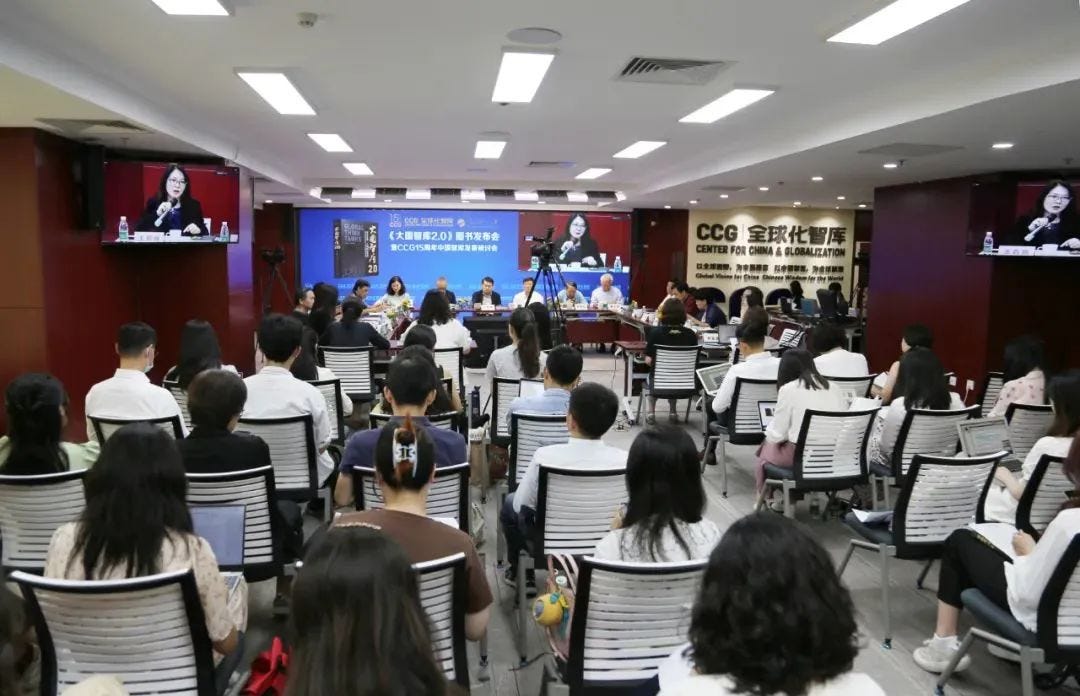
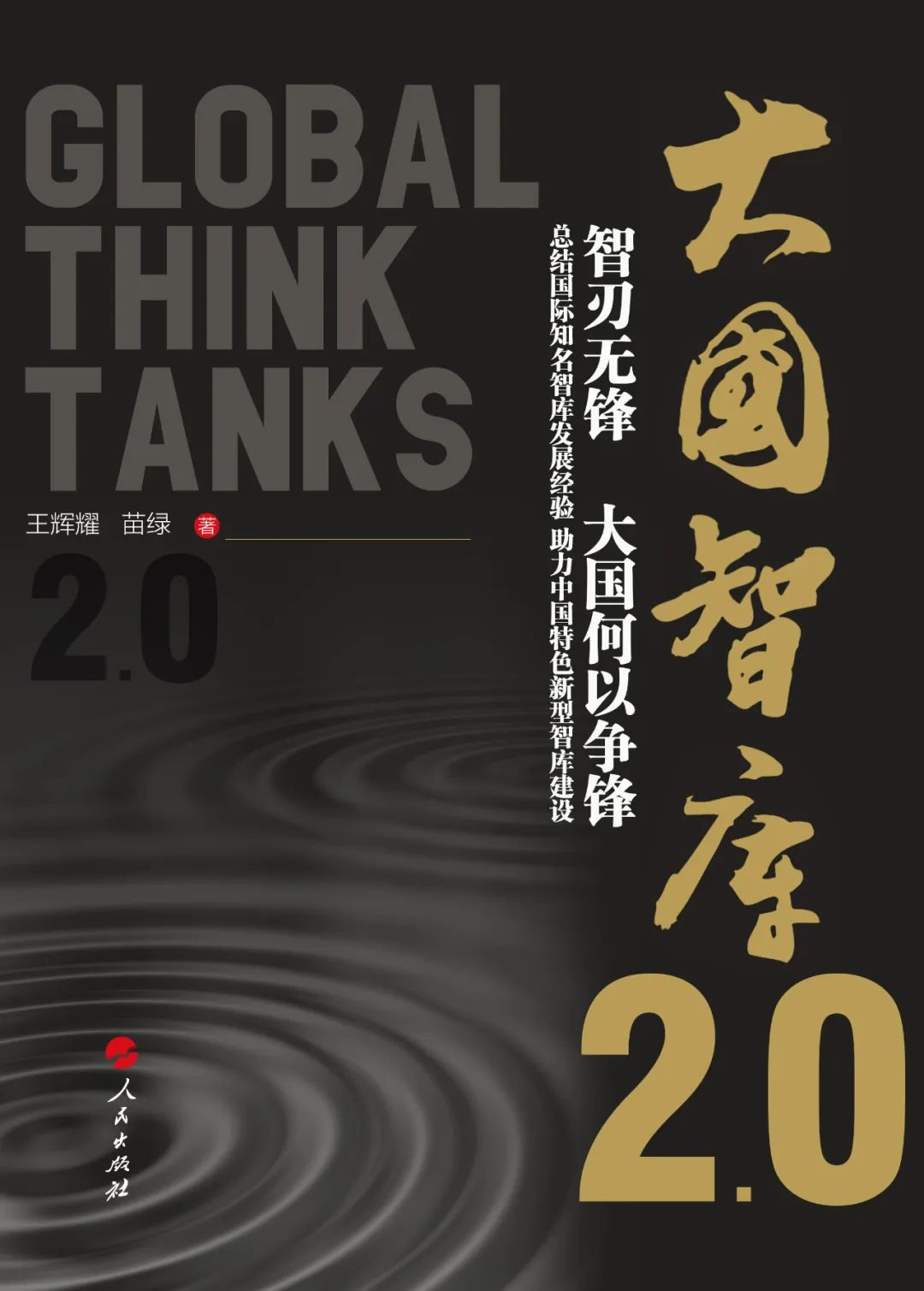
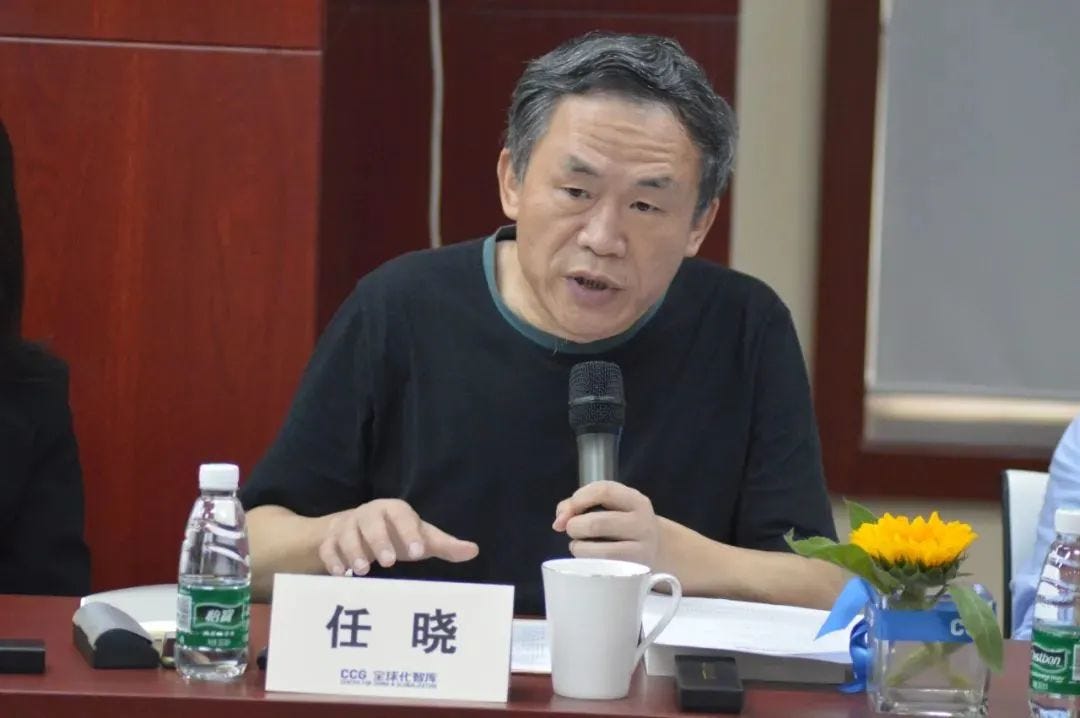
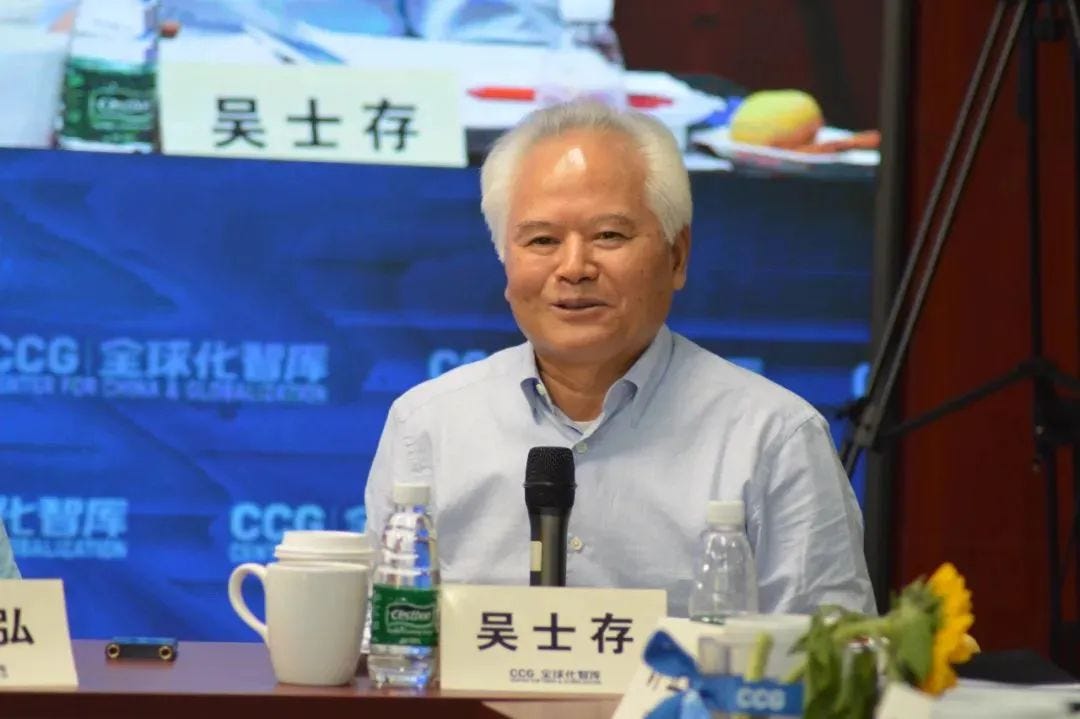
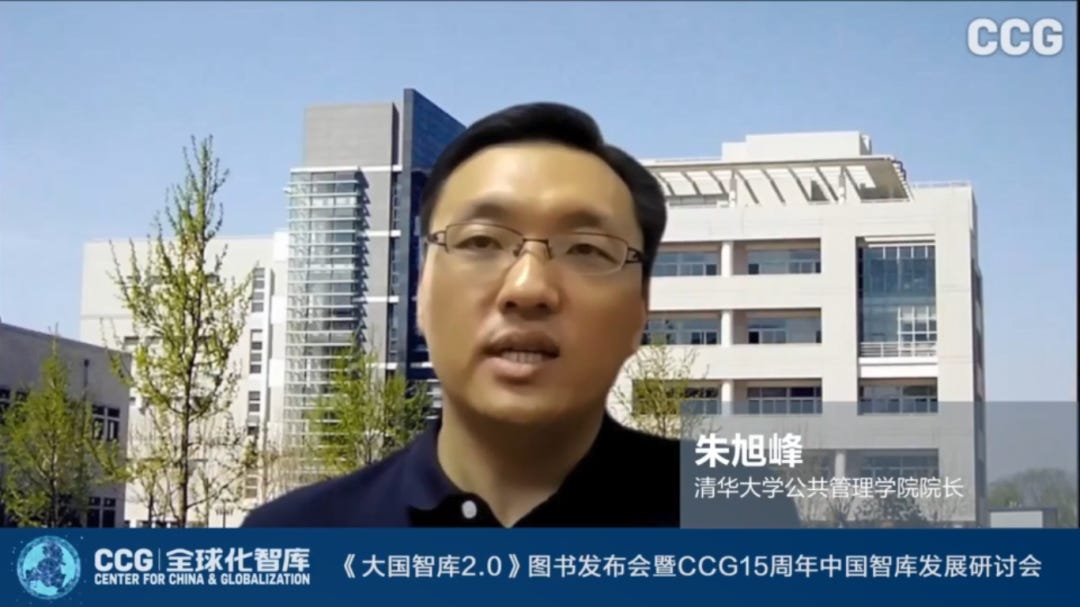
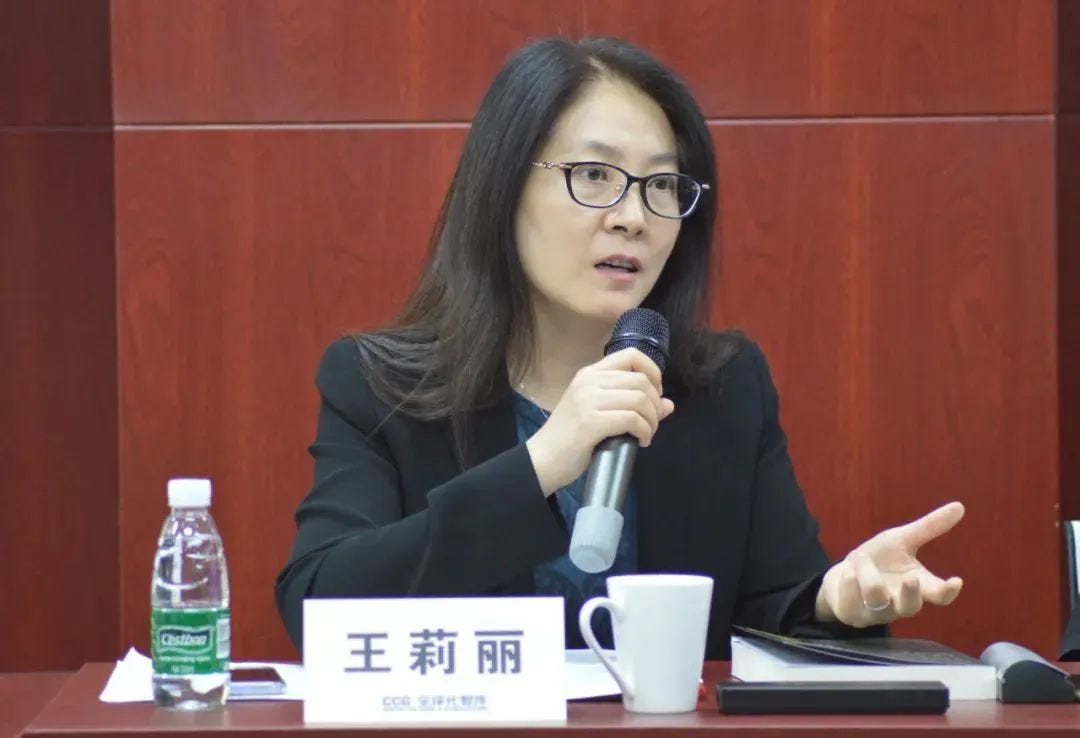
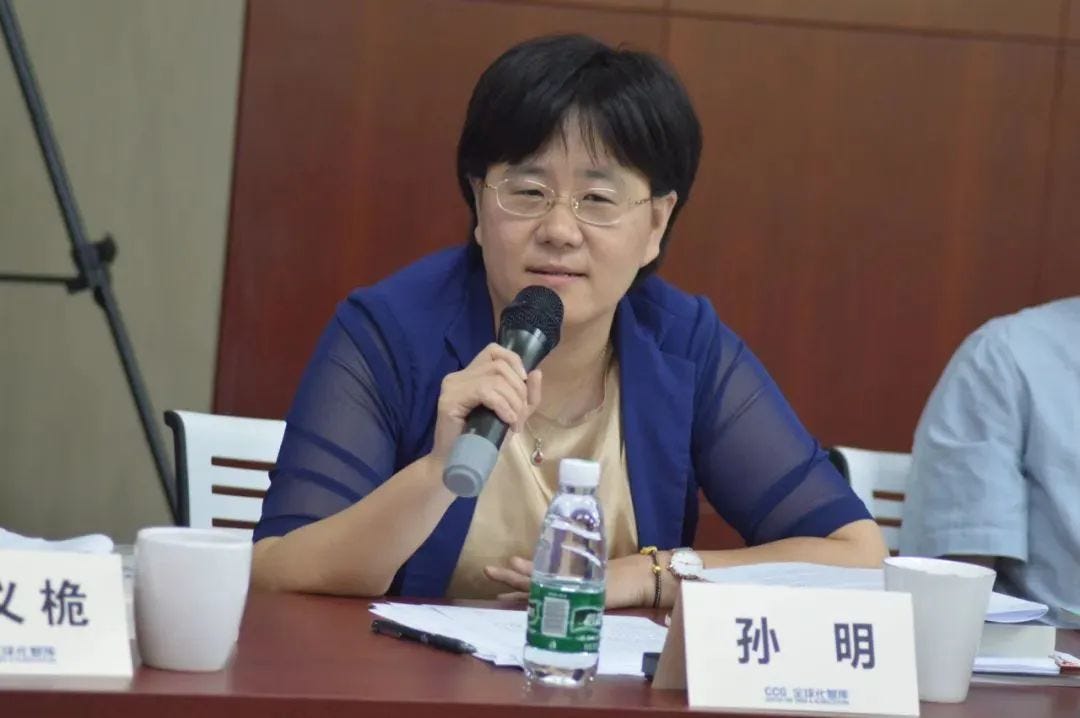
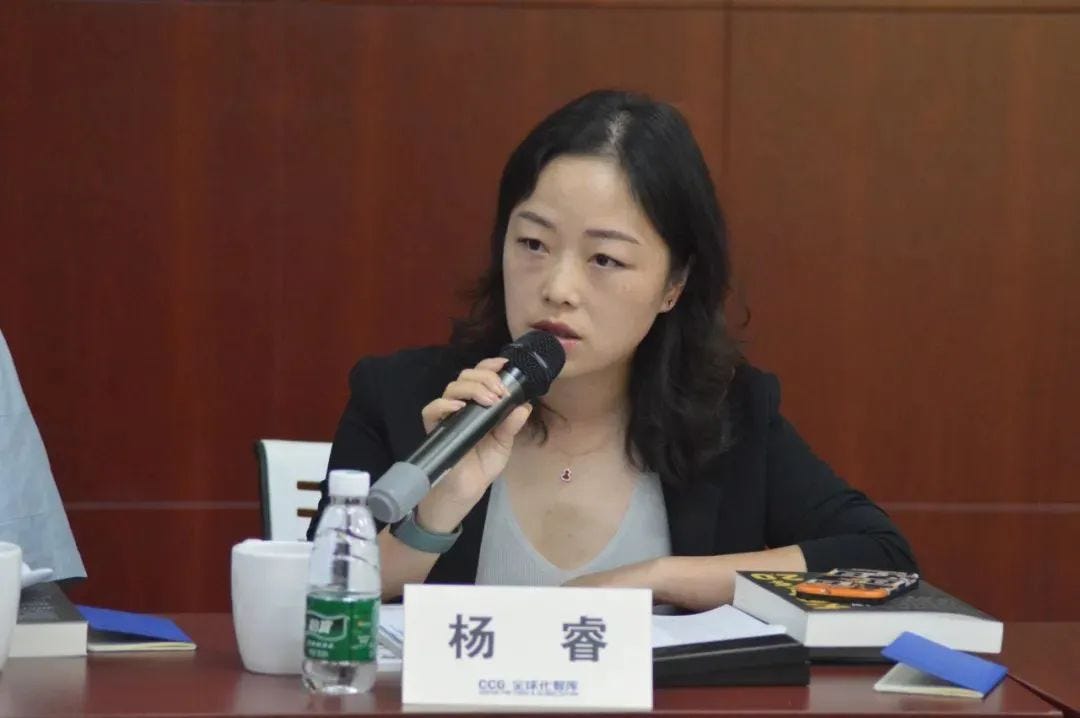
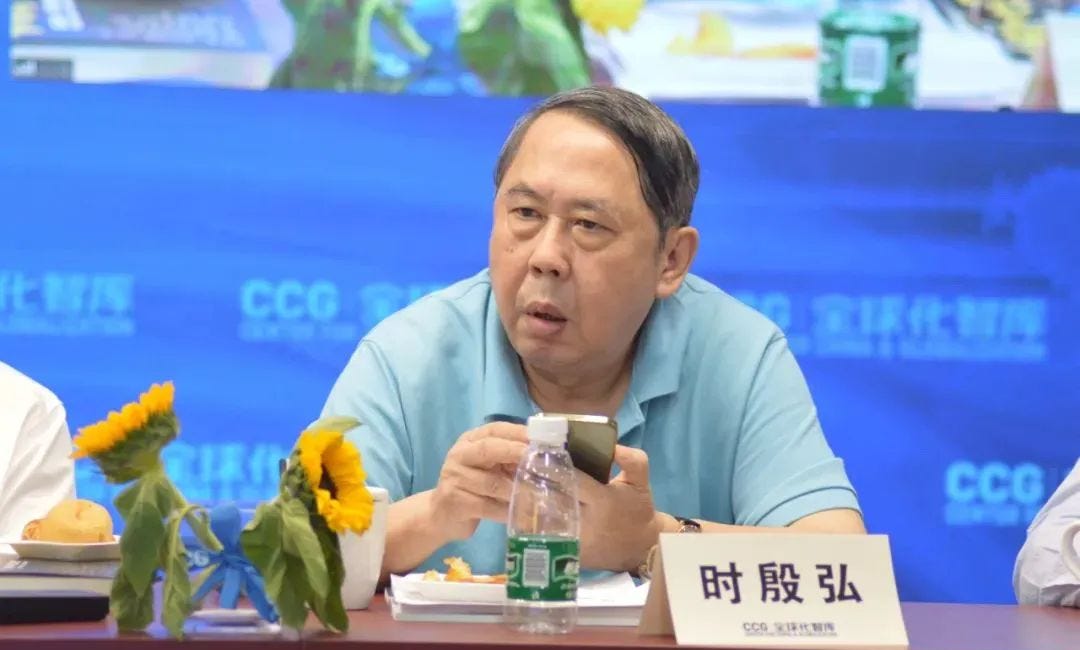
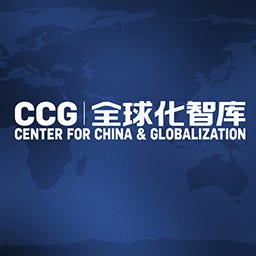
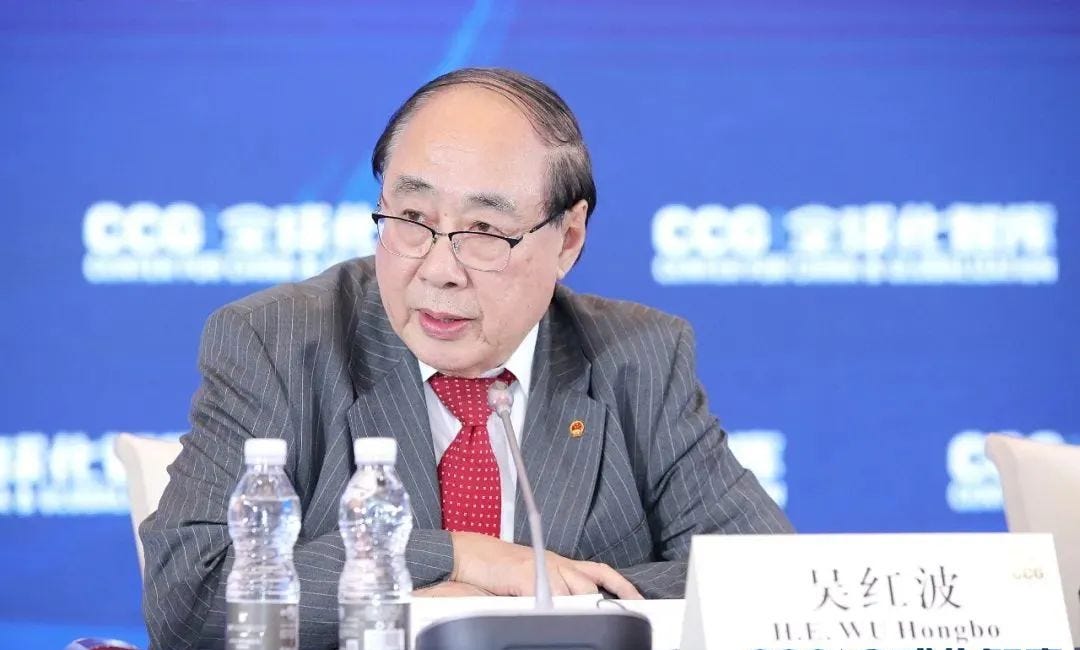
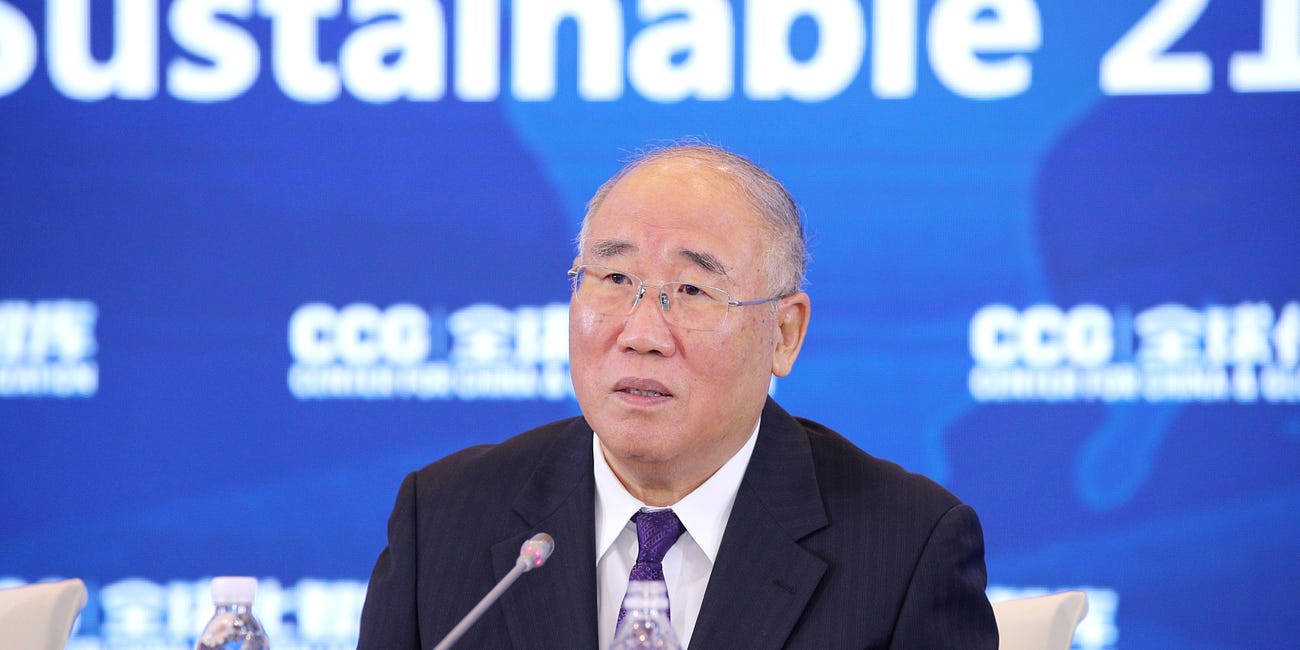
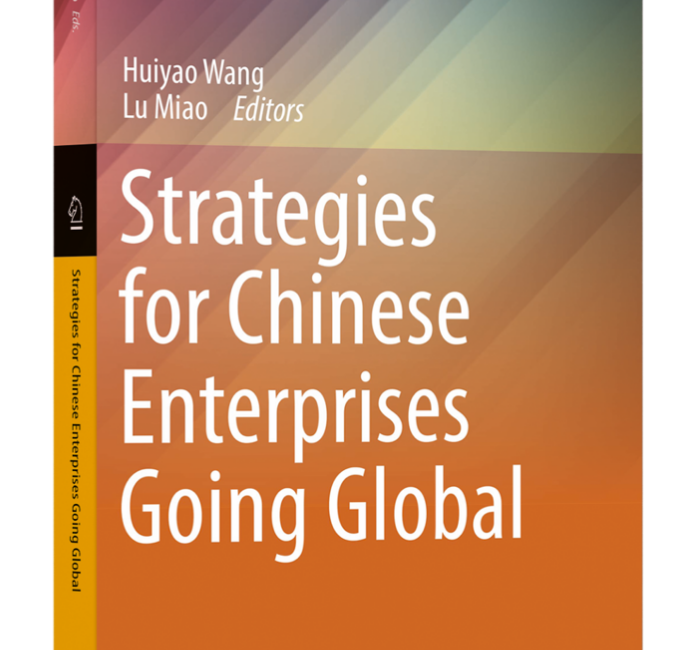

I am very impressed by the work done by Chinese scholar to put in place Think Tanks with international reach. This is what the world needs to counter the negative impact on peace and global cooperation created by a majority of western based Think Tanks.